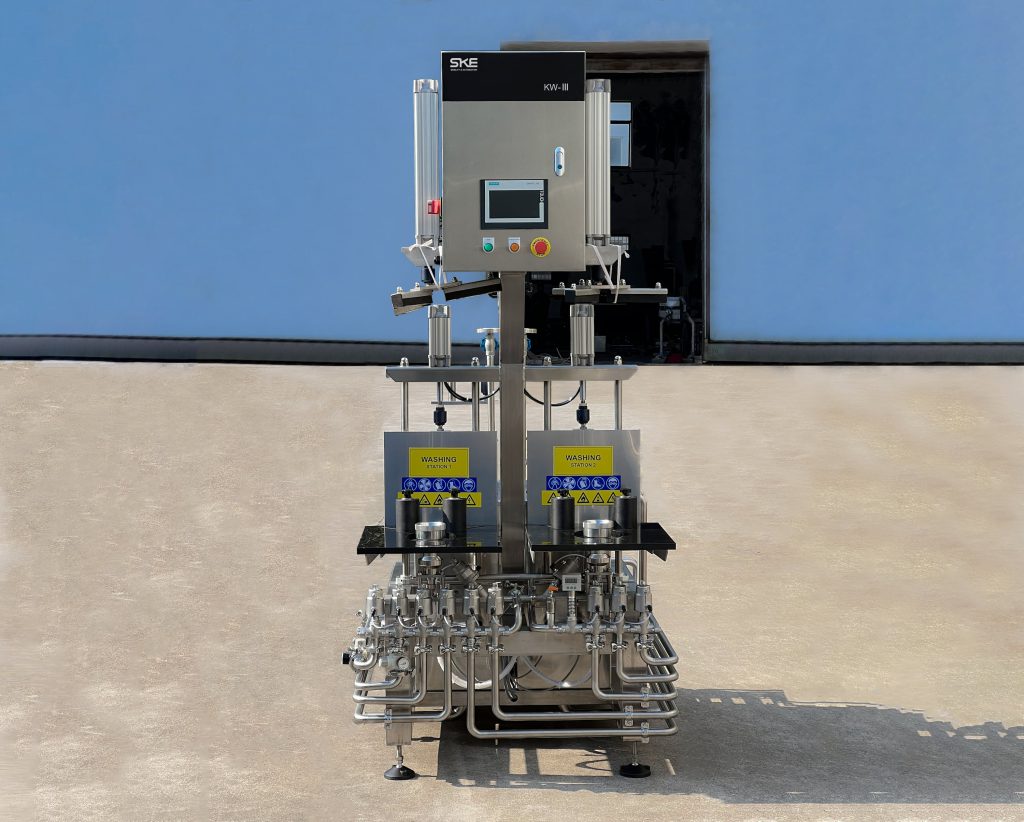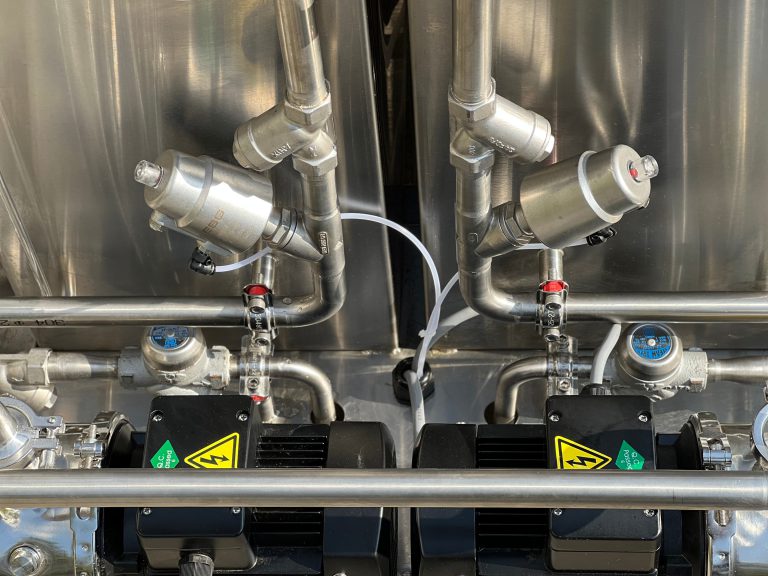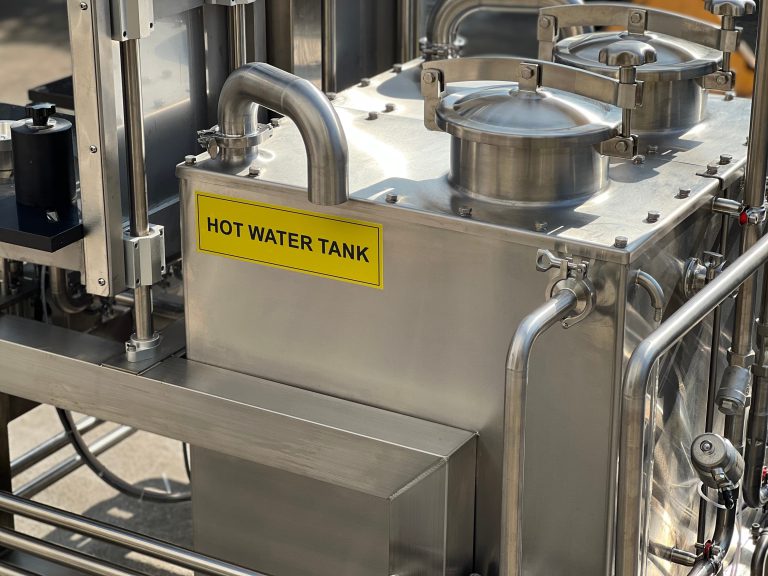Einführung

Abfüllmaschinen spielen in vielen Branchen eine zentrale Rolle, da sie den Prozess des Befüllens von Behältern mit Flüssigkeiten, Pulvern oder Granulaten automatisieren. Von der Lebensmittel- und Getränkeproduktion bis hin zu Pharmazeutika und Chemikalien sorgen diese Maschinen für Effizienz, Genauigkeit und Konsistenz bei der Verpackung. In diesem Blogbeitrag gehen wir auf die Bedeutung von Abfüllmaschinen in der industriellen Automatisierung ein und untersuchen ihre Funktionen, Typen, Anwendungen und die Vorteile, die sie Herstellern bieten.
Verständnis Abfüllmaschinen
Filling machines, also known as fillers or bottling machines, are automated systems designed to fill containers with precise quantities of a substance. They eliminate the need for manual labor, reducing the risk of errors and ensuring uniformity in product packaging. Filling machines come in various types, including:
- Gravity Fillers: Utilize the force of gravity to fill containers with liquids, suitable for low-viscosity substances.
- Pressure Fillers: Employ pressure to fill containers, ideal for carbonated beverages and volatile liquids.
- Piston Fillers: Use pistons to measure and dispense precise volumes of liquid or viscous products.
- Overflow Fillers: Employ a constant level filling principle to fill containers to a consistent level, commonly used in cosmetics and pharmaceuticals.
- Auger Fillers: Utilize rotating augers to dispense powders or granules into containers, ensuring accuracy and minimizing dust.
Anwendungen von Abfüllmaschinen
Filling machines find applications across a wide range of industries:
| Industrie | Anwendung |
|---|---|
| Food & Beverage | Bottling of water, soft drinks, sauces |
| Pharmazeutika | Filling of tablets, capsules, syrups |
| Chemicals | Packaging of solvents, detergents, oils |
| Kosmetika | Filling of creams, lotions, perfumes |
| Household Goods | Dispensing of cleaning agents, detergents |
Vorteile von Abfüllmaschinen
The integration of filling machines into industrial automation offers several advantages:
- Gesteigerte Effizienz: Filling machines are designed to operate at high speeds, significantly enhancing production throughput compared to manual filling methods. With the ability to fill hundreds or even thousands of containers per minute, these machines streamline the packaging process and reduce production time. This increased efficiency not only boosts overall productivity but also helps manufacturers meet tight deadlines and respond swiftly to market demands.
- Precision and Accuracy: Automated filling ensures precise and consistent fill levels, minimizing product wastage and enhancing quality control. Filling machine are equipped with sophisticated sensors and controls that accurately measure and dispense the desired quantity of product into each container. This level of precision eliminates variations in fill levels, ensuring uniformity across all packaged goods. As a result, manufacturers can maintain high-quality standards and minimize the risk of product recalls due to underfilling or overfilling.
- Kosteneinsparungen: The integration of filling machine into industrial automation leads to significant cost savings over time. By automating the filling process, manufacturers eliminate the need for manual labor, which reduces labor costs and minimizes the risk of human error. Moreover, automated filling results in less product wastage due to spills, overflows, or inconsistent fill levels, thereby reducing material costs. Additionally, the increased efficiency and productivity offered by filling machines allow manufacturers to produce more goods in less time, optimizing resource utilization and maximizing profitability.
- Flexibilität: Many filling machines are designed to be versatile and adaptable to various container shapes, sizes, and types of products. This flexibility enables manufacturers to accommodate changing production needs and packaging requirements without significant modifications to the equipment. Whether filling bottles, jars, pouches, or cans with liquids, powders, or granules, these machines can be easily adjusted to meet diverse packaging specifications. As a result, manufacturers can quickly introduce new products to the market and respond effectively to evolving consumer preferences.
- Hygiene and Safety: Automated filling reduces the risk of contamination and ensures compliance with stringent regulatory standards, particularly in industries like food and pharmaceuticals where product safety is paramount. Filling machines are constructed using sanitary materials and feature enclosed filling chambers to prevent exposure to contaminants. Moreover, automated processes minimize human contact with the product, reducing the likelihood of cross-contamination and ensuring product integrity. By adhering to strict hygiene protocols and regulatory requirements, manufacturers can maintain consumer trust and confidence in the safety and quality of their products.
Herausforderungen und Überlegungen

While filling machines offer numerous benefits, manufacturers must consider certain challenges:
- Erstinvestition: Acquiring and installing filling machines can represent a significant upfront investment for some companies.
- Maintenance and Calibration: Regular maintenance and calibration are essential to ensure the proper functioning and accuracy of filling machine.
- Product Compatibility: Different products may require specific filling techniques or materials, necessitating adjustments or additional equipment.
- Integration with Production Line: Seamless integration with existing production lines and other automation systems is crucial for maximizing efficiency.
Abschluss
Filling machines play a vital role in modern industrial automation, revolutionizing the packaging process across various sectors. From improving efficiency and accuracy to ensuring product quality and compliance, these machines offer a multitude of benefits to manufacturers. As technology continues to advance, filling machine are expected to become even more sophisticated, further enhancing productivity and reducing costs in the manufacturing industry.
Häufig gestellte Fragen
F: Kann Abfüllmaschinen handle different types of containers?
A: Yes, many filling machines are designed to accommodate various container shapes and sizes, offering flexibility in packaging.
Q: How fast can filling machine operate?
A: The speed of filling machine varies depending on factors such as the type of machine, the viscosity of the product, and the desired fill volume. Some machines can fill hundreds of containers per minute.
F: Sind Abfüllmaschinen suitable for small-scale production?
A: Yes, there are filling machines available for small-scale and medium-scale production, offering cost-effective solutions for businesses of all sizes.

